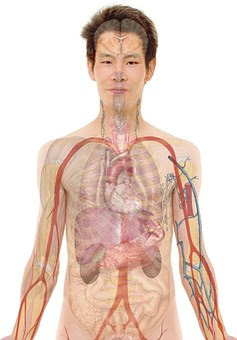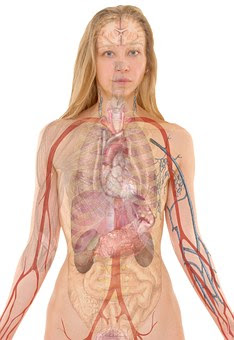The Human Digestive Organs
Jumat, 01 November 2019
Edit
HOW DO HUMAN DIGESTION ORGANS WORK?

Explanation of the human digestive organs
Human digestive organs are the parts that are used for the process of destroying food that enters the body through the mouth, then will be excreted through the anus. If one of the digestion in the body is disrupted it will affect the processing process. So various diseases both mild and severe illness.Study of organ systems
The digestive system in humans has quite an important role with different functions. In the human digestive system food that has been consumed is not fully processed into nutrients that can be absorbed by the body.Then, the remnants of food that cannot be absorbed will be removed by the body through the anus as the body's metabolic process. The digestive system is the basic system for all organ systems in the body, because the organ system functions to produce energy sources for the body and other organs.

Digestive organs and their functions
The following digestive organs and their functions:Mouth
The mouth is a place for food entry or as a food entrance. In the oral cavity the food will be processed chemically and mechanically.
Tooth
There are teeth in the mouth that function to chew the food that comes in before heading to another section. Teeth consist of 4 types and have different functions, namely incisors, canine molars, and back molars.
Esophagus
The esophagus is the connecting organ between the oral cavity and the stomach. This organ functions as a food pathway and pushes food that has been chewed smooth in the mouth to the stomach.
Stomach
Stomach serves to place the occurrence of several digestive processes located in the left side of the abdominal cavity. The stomach consists of three parts, namely the upper stomach (Cardiac), the rounded middle stomach (Fundus), and the lower stomach (Pilorus).
Small intestine
The intestine is the site of absorption of food juices and the longest place of digestion. The small intestine is divided into three parts, namely the duodenum (Duodenum), the empty intestine (Jejenum), and the intestinal absorption (Ileum).
Colon
In the large intestine there are E. coli bacteria that help the process of decaying the remnants of food substances that will become feces. The bacteria also produce vitamin K which plays a role in the process of blood clotting.
Anus
The anus is the final digestive organ. The anus functions as a place to dispose of food scraps (feces) that are no longer needed by the body.

Explanation of Digestion Process
Food will enter through the mouth, mechanical and chemical processes will occur in the mouth. In the mouth, food will be assisted by teeth chewing food to make it smooth. After all the food is smooth, it will be channeled through the esophagus, and into the stomach. In the stomach food will be processed again by the enzyme protease and stomach acid.After food is processed in the stomach, food will be distributed to the small intestine. The small intestine is divided into three, namely the duodenum in the duodenum where food will mix with bile and other digestive enzymes, then to the empty intestine and to the intestine absorption (Ileum) absorption intestine as a place of absorption where food substances will be absorbed by the blood and spleen.
After carrying out the process of absorption of food will be distributed to the large intestine, the large intestine functions as a place of absorption (reabsorption). After that the remnants of food substances will be distributed to the anus to be disposed of in the form of feces.
Problems with digestion
Many people often complain about pain in the digestive organs. Digestive problems are problems that occur in one or more organs of the digestive system. Here are some of the problems that are often experienced by people, including:a. Nausea
b. Bloated
c. Diarrhea
d. Difficulty swallowing
e. Constipation
f. Vomiting blood or blood chapter
g. Ulcer
h. Throw up
Those are some of the symptoms that are often complained of by people. Every problem also has a solution as well as the digestive problems above. How to deal with digestive problems:
a. Take medicines that are recommended by the doctor.
b. Exercise regularly.
c. Do not delay BAB.
d. Don't push too hard when you poop.
e. Drink a lot of water.
f. Avoid consuming alcohol.
g. Increase eating fibrous food.
Thus the explanation of the digestive organs in humans. Take care of your health because being healthy is expensive. If you don't take care of yourself, then who will? Hopefully useful and happy reading.
Author : Lailatul Hidayati